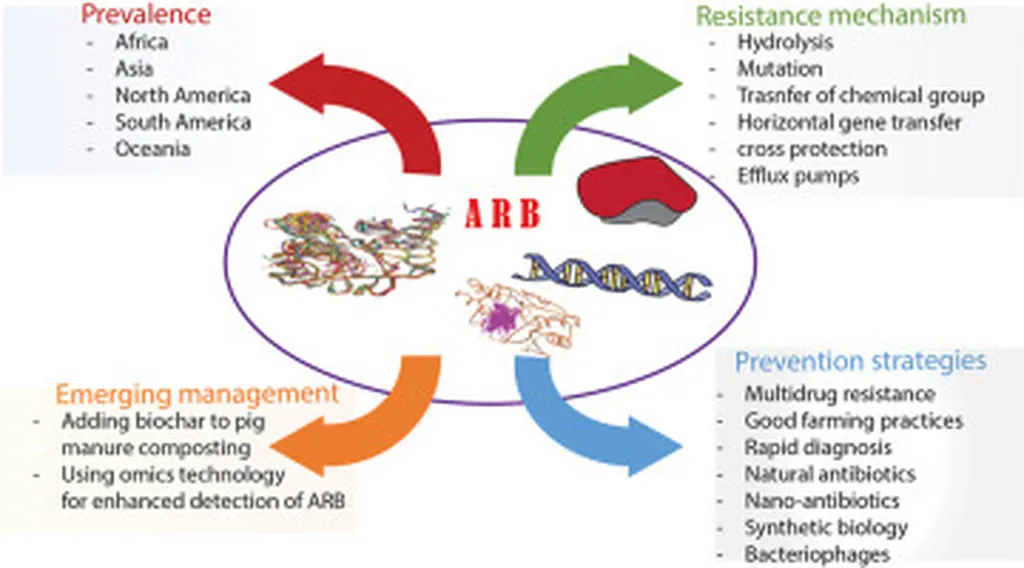In the ongoing battle against antibiotic-resistant bacteria, scientists are turning to an unlikely ally: predatory bacteria. A recent study published in the *International Journal of Bio-Resource and Stress Management* explores the potential of these natural predators as a novel approach to treating infectious diseases, particularly in the agricultural sector.
The research, led by Shiney George from the Department of Microbiology at Lakhimpur College of Veterinary Science in Assam, India, focuses on Bdellovibrio bacteriovorus and other bacteria like organisms (BALOs). These microorganisms naturally prey on other Gram-negative bacteria, which are a significant cause of infections in both humans and animals.
“Antibiotics have been a cornerstone of modern medicine, but their overuse has led to the emergence of resistant strains,” George explains. “We need innovative solutions to combat these superbugs, and predatory bacteria offer a promising alternative.”
The study highlights the potential of BALOs to control bacterial infections in agriculture, where antibiotic resistance is a growing concern. Livestock and poultry farming, in particular, are heavily reliant on antibiotics to prevent and treat diseases. However, the rise of resistant bacteria threatens the effectiveness of these treatments, leading to increased morbidity and mortality in animals, as well as economic losses for farmers.
Predatory bacteria could provide a sustainable and effective solution to this problem. Unlike antibiotics, which can be rendered ineffective by resistant bacteria, predatory bacteria adapt and evolve alongside their prey, maintaining their effectiveness over time. Additionally, they can target specific pathogens without harming beneficial bacteria, preserving the microbial balance in the gut and environment.
“The use of predatory bacteria in agriculture could revolutionize the way we manage infectious diseases in livestock,” says George. “Not only could it reduce our reliance on antibiotics, but it could also improve animal welfare and productivity.”
The commercial impacts of this research could be significant. Farmers could benefit from reduced veterinary costs, improved animal health, and increased productivity. Additionally, the development of predatory bacteria-based treatments could open up new markets for biotech companies and create job opportunities in the agricultural sector.
However, the transition from antibiotics to predatory bacteria will not be without challenges. As George notes, “A paradigm change is necessary. It may seem counterintuitive to treat a bacterial infection with another bacterium.” Furthermore, the safety and efficacy of these treatments will need to be thoroughly evaluated before they can be widely adopted.
Despite these challenges, the potential of predatory bacteria as an antibiotic alternative is promising. As the world grapples with the threat of antibiotic resistance, innovative solutions like this could shape the future of disease management in agriculture and beyond. The research led by Shiney George from the Department of Microbiology at Lakhimpur College of Veterinary Science in Assam, India, published in the *International Journal of Bio-Resource and Stress Management*, offers a glimpse into this exciting new frontier.

